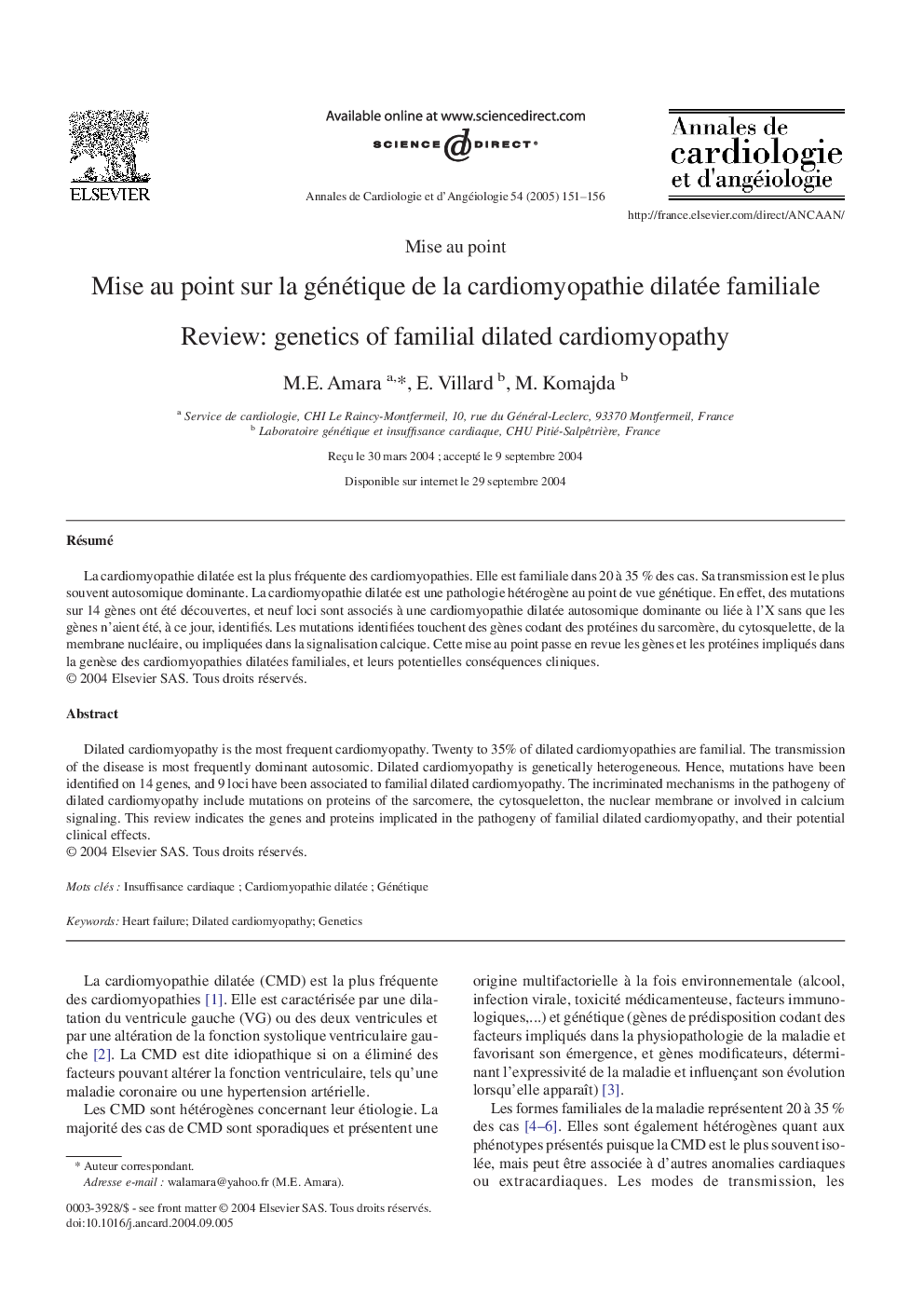| Article ID | Journal | Published Year | Pages | File Type |
|---|---|---|---|---|
| 9157363 | Annales de Cardiologie et d'Angéiologie | 2005 | 6 Pages |
Abstract
Dilated cardiomyopathy is the most frequent cardiomyopathy. Twenty to 35% of dilated cardiomyopathies are familial. The transmission of the disease is most frequently dominant autosomic. Dilated cardiomyopathy is genetically heterogeneous. Hence, mutations have been identified on 14 genes, and 9 loci have been associated to familial dilated cardiomyopathy. The incriminated mechanisms in the pathogeny of dilated cardiomyopathy include mutations on proteins of the sarcomere, the cytosqueletton, the nuclear membrane or involved in calcium signaling. This review indicates the genes and proteins implicated in the pathogeny of familial dilated cardiomyopathy, and their potential clinical effects.
Related Topics
Health Sciences
Medicine and Dentistry
Cardiology and Cardiovascular Medicine
Authors
M.E. Amara, E. Villard, M. Komajda,
